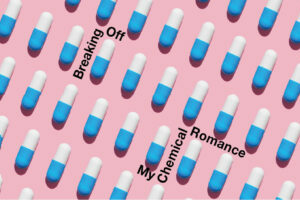From The Nation: “[Training psychiatrist and researcher Dr. Mark] Horowitz’s experience sounded remarkably like that of others I talked to who’d been on antidepressants—and remarkably like my own. He went from being a true believer in the drugs to seeing the antidepressant industry as similar to Big Tobacco in its funding of research and academics who favor its profit margins . . .
It’s impossible to say how many people like Horowitz exist—people who once believed in SSRIs, or their close cousins the SNRIs, as near-miracle-treatments for depression and have now changed their minds. But if you go by the hundreds of Facebook pages, Web forums, and subreddits dedicated to negative experiences with antidepressants, it becomes obvious that at least tens of thousands of people feel their lives have been negatively affected, or in some cases ruined, by the drugs. And those are just the ones who feel strongly enough to post about their experiences.
The field of psychiatry itself may be going through a similar reckoning. A wave of research suggests that the drugs are less effective and more dangerous than many previously believed. And some medical professionals are concluding what until recently felt too heretical to say out loud: Antidepressants may often cause more harm than good.
. . . we don’t know much about how they work, or even if they work for many of the people who take them. The theory that antidepressants correct a chemical imbalance of neurotransmitters like serotonin and norepinephrine is not a proven fact. Their basic functioning has not been definitively established. The story we all know is more marketing than science. And the incentive to find out whether they are indeed the best way to treat depression does not exist. In a world where so much scientific research is conducted by pharmaceutical companies and the entities they back, if drugs are making a profit, there’s little reason to question them.
. . . Even psychiatrists who believe in the efficacy of SSRIs and SNRIs know that the idea that they correct a chemical imbalance is, at best, an oversimplification. ‘It’s mostly a discredited theory,’ Michael Thase, a psychiatry professor at the University of Pennsylvania, told me. ‘There’s not any good evidence that depression in and of itself is caused by deficiencies or deficits’ of serotonin or other neurotransmitters.
The true believers in chemical imbalance, it turns out, aren’t scientists, but an American public that has mostly gotten its information from advertisements . . .
The main argument between pro-SSRI and anti-SSRI researchers is the cutoff for what is considered effective. Do a few points more on a scale that measures patients’ quality of life matter clinically? If so, what is the precise cutoff for ‘effective’ versus ‘ineffective’? Researchers largely agree that antidepressants give a small bump on the standard Hamilton Depression Rating Scale, but the unanswered question is whether that bump means antidepressants are worth it given their possible side effects.
‘My guess is that, 20 years from now, people will look back at prescribing antidepressants the way we now look at things like bloodletting,’ [said Dr. Irving Kirsch, associate director of the Program in Placebo Studies at Harvard]. ‘If they are to be used at all, it should be as a last resort when nothing else is working.’
. . . this calls for changing the mainstream narrative that ‘antidepressants work’ to something more scientifically accurate: Antidepressants may work better than a placebo, especially in the most severely depressed patients, though we don’t know exactly how, and the data is conflicting—and even when the research is promising, it’s tainted by the fact that much of it is funded by drug companies.
. . . ‘I think what I experienced during withdrawal is outside the scope of what a human is capable of feeling without chemical manipulation,’ [said Jessica Gonzales, a 36-year-old Californian who started taking antidepressants in college]. ‘Our language doesn’t have the words to describe it.’
Gonzales choked up as we talked. She said she used to feel angry—angry that no one was there to address the underlying reasons for her sadness when she was put on antidepressants . . . And she was angry because she believes that the drugs she thought were helping her had incapacitated her for many years instead.
‘It’s like you’re in a car, and you have this “check engine” light, because your car is about to fall apart,’ she said. ‘And someone comes up and is like, “I have this great solution.” And they just turn off the light. And meanwhile your car is smoking and on fire.'”

***
Back to Around the Web











